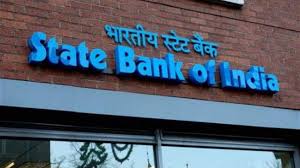NCDRC rejected a Revision Petition filed by State Bank of India and upheld the orders of District commission and State Commission which had directed the Bank to de-freeze the account of complainant Manika Sarkar, in which her monthly pension was credited.
Manika Sarkar held a joint account in SBI along with her son, who was employee of the Bank. She is a widow of a defence personnel and her family pension used to be credited to her savings account jointly held with her son in SBI.
SBI froze the joint account held by Sarkar on the ground that a criminal case was registered against her son who is a joint owner of the account and thus all transactions in it were prohibited.
In theis helpless situation, Sarkar filed consumer complaint against the Bank contending that the freezing of her account deprived her of the monthly pension which was the sole source if her sustenance.
The Bank obviously opposed the plea contending that Sarkar was not a consumer within the meaning of Consumer Protection Act, 1986. Bank further argued that the account was prima facie not a pension account but a joint savings account in which her pension was credited at her request.
The District forum passed an interim order in favour of sarkar directing the bank to permit her to operate the account and withdraw her pension as usual.
The Forum also held that she cannot withdraw any other amount besides the pension. It observed that “Pension is meant for survival of the pension-holder, which cannot be attached or withheld by anyone.”
The District form held that if amount is not withdrawn, the respondent will suffer irreparable loss and injury.”
The Bank after losing in District forum filed an appeal in State Commission against the order of district commission. The State Commission dismissed the appeal and held that respondent cannot be made to suffer due to an offence committed by her son, who incidentally was a joint holder of the account in question.
The Bank then reached up to NCDRC and again NCDRC declined interference in the matter noting no irregularity in the orders passed by the authorities below it. The NCDRC held that Sarkar was a “consumer” as per the Consumer Protection Act as she had a joint account in the bank, where her pension was deposited regularly.
Courtesy/By: Sonali Tiwari
|
05 Mar 2019

